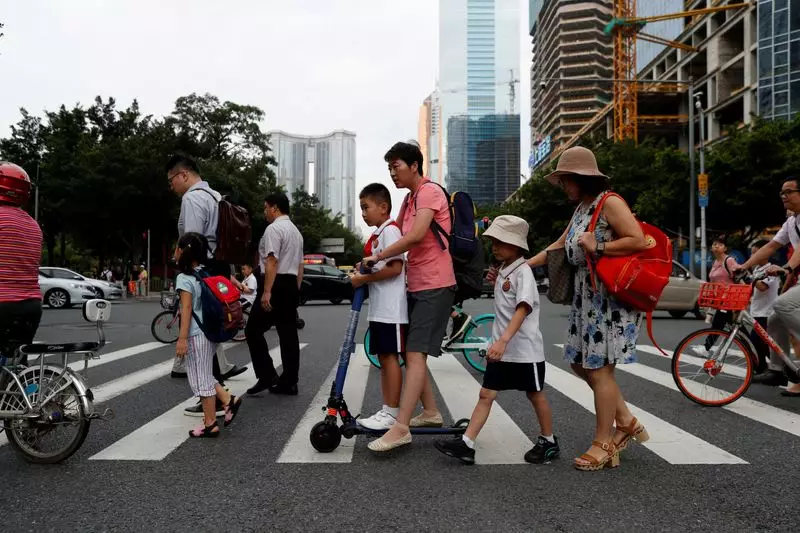In recent months, reports have surfaced suggesting that China is softening its initially strict regulatory stance on private tutoring companies, a sector that has faced intense scrutiny since the implementation of the “double reduction” policy in 2021. This policy aimed to alleviate the financial burden on families associated with education costs by prohibiting profit-driven tutoring in core school subjects. Unfortunately, these measures resulted in massive financial losses for tutoring firms and job cuts across the industry, affecting tens of thousands of employees as the market value plummeted by billions. The sector, once valued at approximately $100 billion, found itself in turbulent waters due to drastic government interventions.
As signs of economic strain became evident, coupled with rising youth unemployment, Beijing appears to be shifting its focus. Although there has been no official declaration of a policy reversal, market analysts and industry insiders report a burgeoning sense of acceptance from the Chinese government toward the private tutoring sector. This transformation is not only an indicator of economic necessity but also signals a pragmatic approach to deal with lingering educational pressures faced by families.
Amid this backdrop, voices from the ground reveal that parents are increasingly aware of an evolving atmosphere surrounding tutoring services. For instance, a mother, Michelle Lee from southern China, has noted a noticeable change in the operations of tutoring organizations. After a period of increased caution in classroom settings—where providers would keep their curtains drawn and their activities covert—tutoring centers are now openly conducting classes. This subtle shift indicates that parents, who have suffered under stringent regulations, are beginning to again leverage tutoring options to secure a competitive edge for their children.
In a society where education is highly prioritized, parents like Lee often feel an acute sense of obligation to ensure their children’s academic success. Despite the heavy financial strain—spending around $420 monthly on tutoring for her children—Lee articulates the psychological burdens many parents endure, suggesting that the pressure to perform has not waned but rather adapted to the new regulatory landscape.
The resurgence of the tutoring sector may be further buoyed by governmental hints toward a more supportive regulatory framework. A key development came from an announcement by the State Council in August, which included educational services in a broader economic plan aimed at revitalizing consumption. Such measures are significant given the context of over 11 million university graduates entering the job market, where prospects remain challenging.
Despite speculation surrounding the government’s true intentions, analysts believe that admitting to a policy misstep regarding the crackdown would be politically unfeasible. Instead, as Lynn Song from ING posits, an implicit relaxation of regulations seems to be the route pursued by authorities seeking to create a more enabling environment for the tutoring industry, which is now seen as player in combating burgeoning youth unemployment.
The adaptation of tutoring firms in response to regulatory pressures is noteworthy. Companies have begun innovating their offerings, often choosing to teach subjects that circumvent the direct restrictions imposed by the government. For instance, mathematical skills are being marketed under the guise of “logical thinking,” a nuanced approach that allows these businesses to continue operating under the radar.
Reports from industry executives suggest that the regulatory atmosphere has changed, with a reduction in inspections of tutoring centers—a marked contrast to the pre-2021 environment. As companies begin to rehire employees and expand their offerings, it appears that the industry is cautiously rebounding from its enforced dormancy. The presence of an approved “white list” of organizations sanctioned to provide certain types of tutoring has also revealed a more nuanced regulatory acceptance of non-core subjects.
Despite signs of improvement, the road ahead for the private tutoring sector remains convoluted. Companies like New Oriental and TAL Education Group are attempting to navigate a new landscape fraught with uncertainties. Their commitment to compliance and monitoring emerging regulations reflects a mature awareness of the delicate balance firms must maintain. Moreover, challenges persist as parents navigate the narrowing choices between affording personal tutors and dedicating substantial time to their children’s education.
As China inches toward a policy landscape that embraces elements of the educational sector previously marked for stringent control, it will be crucial for stakeholders—including families, educators, and policymakers—to remain alert. In this evolving environment, the intersection of educational aspirations and economic realities will define the contours of the tutoring industry’s revival in the coming years, positioning it as not only a business sector but a crucial player in stakeholder welfare and national stability.

